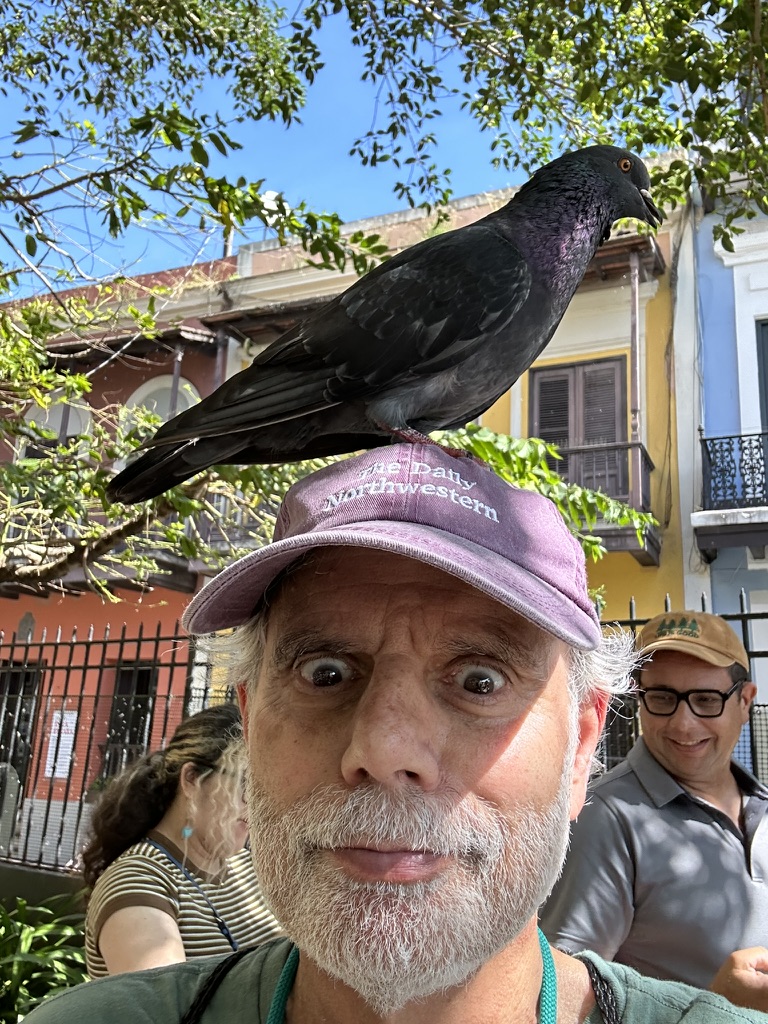Evanston RoundTable, Jan. 29, 2020
“Words, words, words. I’m so sick of words,” sang Eliza Doolittle in My Fair Lady. That seems truer than ever these days. The world is filling up with words, pouring out from every podcast and publication, talk show and tweet, editorial and essay. Some of these words are hurtful or divisive, others are misleading or just plain wrong. Do we need more of them?
Well, yes. Not the hurtful or inaccurate ones, certainly, but others, the ones that help us in our daily lives, the ones that bring us together. We could use a lot more of those.
Even though we talk our whole lives, fruitful, productive conversation is surprisingly hard, especially between people on opposite sides of the great divide of politics and generations. We’re often urged to avoid these hard conversations, because they can so easily grow volatile and confrontational. Thus the spate of articles over the last two months on the risk of holiday meals that advised us to go heavy on cranberries and stuffing and light on politicians and policy. But that’s taking the glass-half-empty approach. Done right, such conversations can promote better and deeper connections.
The trick is to begin with genuine humility and interest. Listen before talking. Ask your conversational partner(s) to tell you what they’re up to, what they’re thinking, because that is the best—and sometimes the only—way to find out. The payoff is greater understanding. And understanding is the main ingredient for love and tolerance. “Anything that’s human is mentionable, and anything that is mentionable can be more manageable,” said Fred Rogers, a master of honest and fruitful talk.
If we enter into the dialogue with sincerity and civility and genuine interest, willing to constrain our own opinions in favor of listening hard, we are almost sure to gain some new and valuable insights and perspectives.
Writing is a different kind of communication, but just as critical.
For one thing, it helps us understand what we believe. “I write because I don’t know what I think until I read what I say,” said Flannery O’Connor. Writing—good writing, anyway—requires serious logic and rigor and the application of the three C’s: to be clear, concise and compelling.
It’s not easy. Talk is simple (cheap, even), while writing is hard. “There is nothing to writing,” said Ernest Hemingway. “All you do is sit down at a typewriter and bleed.” So most people avoid the messy, painful business of formal writing. Old-fashioned personal letters are almost obsolete (when was the last time you got one?), replaced by the 280-character shout-outs of today’s tweets and slapdash and grammatically challenged emails. Emojis have replaced genuine emotions.
But that is all the more reason to write right, to practice the hard craft of getting our thoughts down on paper or pixels.
Writing has some advantages over talking. For one thing it’s how we pass along our history. Homer’s mesmerizing tales from ancient Greece, the Bible’s landmark stories and lessons, the first tale to come down to us known as The Epic of Gilgamesh (all originally oral, then committed to papyrus and paper)—are now thousands of years old and still fresh and important. In an ephemeral world, where nothing (including fame) lasts more than 15 minutes, writing provides a template for immortality. If you want to ensure your background and beliefs are known to your children and grandchildren and posterity, take pen in hand or fingertip to keyboard and type away. Pass along what’s most important to you, be they memoirs, love letters, eulogies or memories.
My father, three days after he married my mother and in the thrall of their honeymoon, set aside a quiet hour to pen a love letter. In his beautiful, florid cursive, he wrote this: “I want you to know that in this minute, this very second, I love you more than I did a second ago and that, as each succeeding minute and second fall away into eternity thus does each minute and second add and increase my love for you.”
I’m blessed to have this letter. It looks as good today as it did when he wrote it on Palmer House stationery on Feb. 6, 1939. The crisp letterhead paper, the charged and intimate sentiment, the beautiful handwriting all make it—and him—eternal in my eyes. Without that record, all his passionate words would have disappeared.





+ There are no comments
Add yours